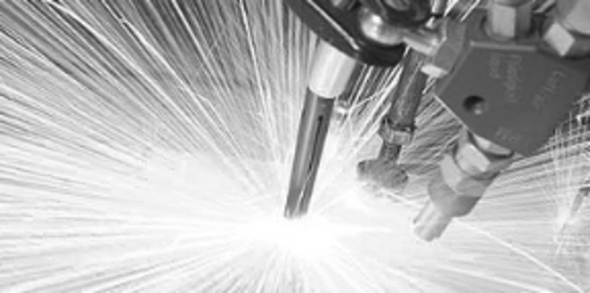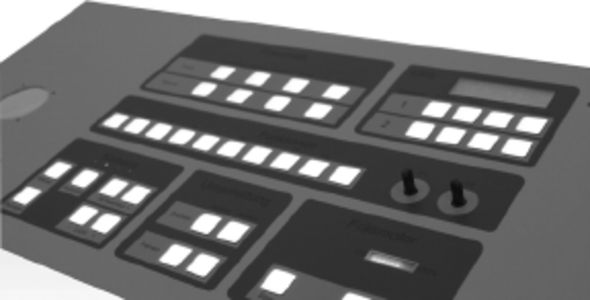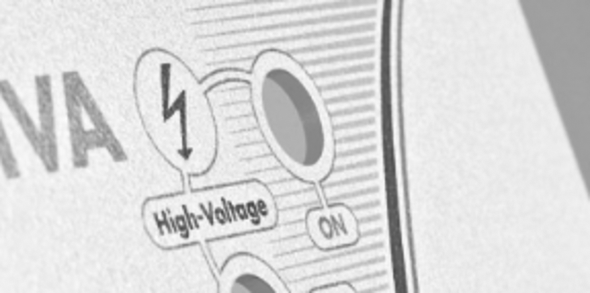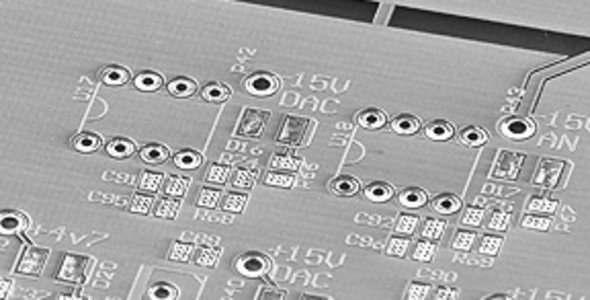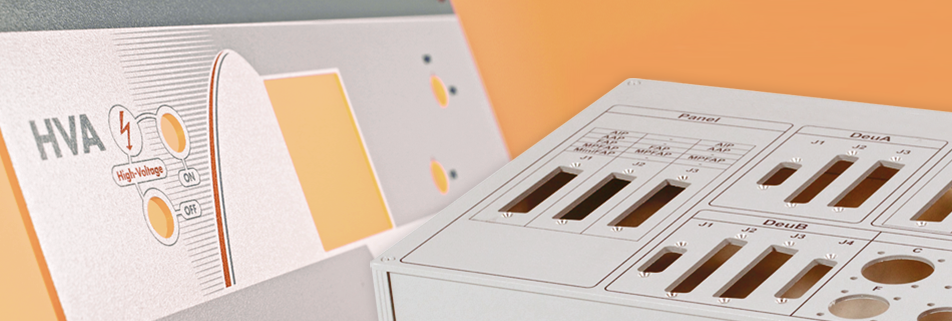
Front panels
in all shapes, colours and materials
Tempering
Extra resistance by chemical or thermal curing
Glass is actually a rather brittle material. By means of a refining process (tempering), the glass surface can withstand higher loads such as high temperature differences. The tempering results in a high shock and impact strength.
The tempering can be achieved by two different methods
Chemical curing
Through the process of chemical curing, the glasses become more resistant in their impact, bending and scratch resistance. The material strength is strongly dependent on the duration of the tempering process and the base material.
Printing, coating, grinding, bending, matting or etching must be done before chemical curing.
In chemical tempering, the glass is immersed in a molten salt bath at high temperatures. During the process, ion exchange occurs at the surface (sodium / aluminium ions are exchanged by the larger potassium ions, this creates a compressive stress at the surface which gives the glass a higher strength.
Thermal tempering
Through the thermal tempering process, the bending strength of the glass is increased and if the load is too high, the glass decays into small blunted crumbs. Therefore the risk of injury is significantly reduced, so it can also be considered as tempered safety glass (ESG).
The thermal hardening of the glasses takes place after their processing. Therefore all processing operations must be made before the finishing process, such as cutting to the final dimension, edge processing or drilling.
The production of thermally hardened glass takes place in a furnace which heats the glass to about 600°, then the glass is cooled down in a certain cooling curve.This results a compressive stress in the glass surface.
Chemical curing glasses offer the following properties
- scratch resistance
- impact resistance
- bending strength
- higher temperature resistance
Thermally hardened glasses offer the following properties
- high impact resistance
- high scratch resistance
- high thermal shock resistance
- high bending strength
- crumbling in breakage
We are happy to assist!
WÖHR sectors in one click



